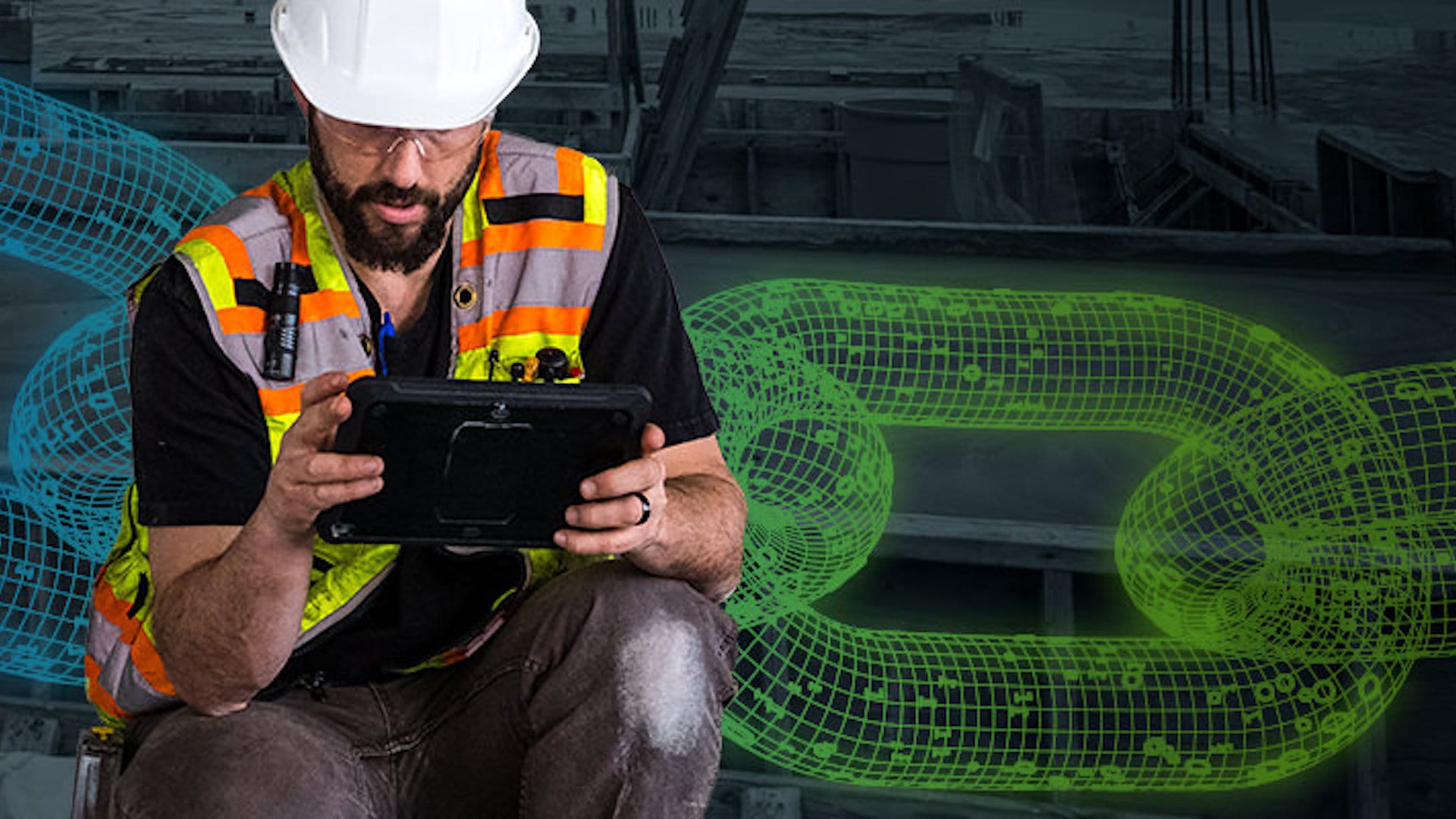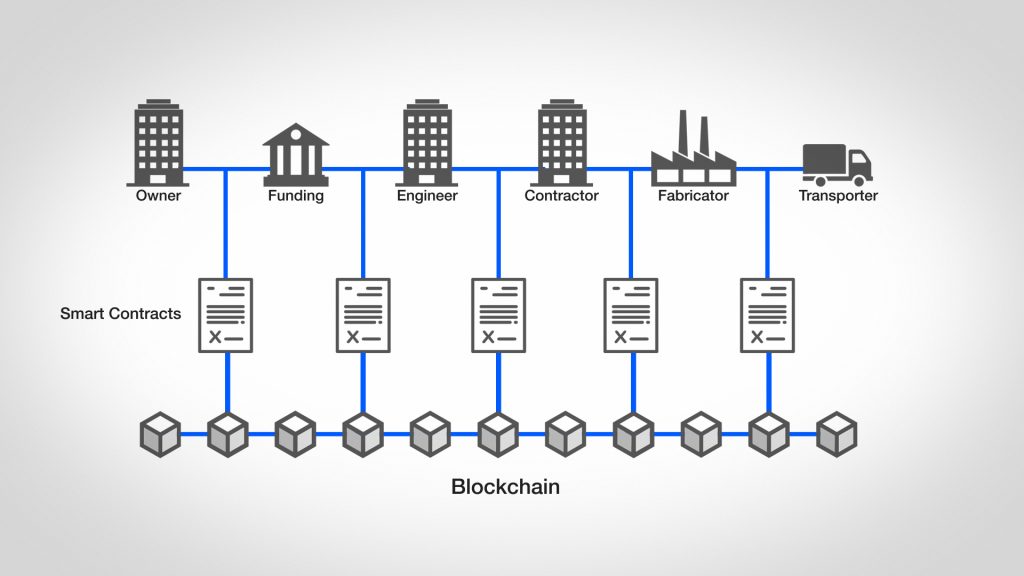
One of the things we always hear these days is how construction is changing. Companies that embrace this new world will set their businesses up to succeed deep into the future. Those that do not, however, are going to likely struggle to keep up. Rapid advances in technology are mainly driving construction's transformation, and undoubtedly, one of the big buzzwords that the technological revolution has birthed is "blockchain."
Do you know what blockchain is? Do you know how valuable its utilization could be on construction sites? Most construction professionals have no idea what blockchain is, in addition to the general public. In fact, according to a poll from HSBC, “80% of those who have heard of the tech said they don't understand what that is.”
However, the construction and the world will continue to change. Now, is the time to educate yourself about this groundbreaking emerging technology and learn how it can be applied to construction’s future. Doing so can benefit your company in some considerable ways. Why? Let’s explore, below.
Before we can get into explaining how a specific technology is going to help move your company forward, we first have to define it. So, what exactly is blockchain?
Simply put, it's broadly defined as a system that tracks transactions across a peer-to-peer network. In some situations, these transactions are made via either cryptocurrency or bitcoin. Blockchains acts as a distributed digital ledger among this peer-to-peer network where various kinds of agreements, whether they are financial transactions or contracts, can be recorded and confirmed once complete.
Now you might be thinking, but how does blockchain technology apply to the construction industry? Aside from benefits in the change of money, adopting such technology could also assist with a more streamlined exchange of another thing that's crucial to the success of a construction project: information.
Being that a blockchain system is designed to continuously track updates of digital records, it is very much a technology that could revolutionize the way that project teams build in the future. Basically, blockchain in construction has the potential to be a game-changer.
So in what ways can blockchain be a positive force of change in the construction industry? Here's a look at four revolutionary uses for blockchain in construction.
Smart contracts are largely hailed as the future of the construction industry. According to the University of West England, automated contracts that reduce the necessity of intermediaries and can save time and money are poised to make their mark on the industry. Blockchain is one way that these contracts can be updated and transactions recorded.
What does the basic premise look like? Enstoa has detailed an accurate depiction of how something like this might pan out.

It would likely involve the creation of some sort of centralized tracking system, where the parties involved define the rules, regulations, penalties, etc., around the project that they're working on together. The system would then work to automatically enforce these rules and regulations as the project progresses. For example, if a material was not shipped on time, the blockchain system would record that and an appropriate retaliatory action—per the pre-agreed upon rules and regulations — could be imposed. If this is a penalty fee, for instance, the transaction could occur automatically via bitcoin or cryptocurrency.
Fundamentally, implementing such as system wouldn't just improve efficiency and resolve disputes before they even have a chance to occur, but they could also work to hold the parties involved more accountable.
You've surely heard and are already implementing various building information modeling(BIM) technologies on your project sites, but when BIM and blockchain combine, it could be a dangerously effective combination. When combined, BIM and blockchain can work to greatly enhance the effectiveness of smart contracts.
For example, in BIM, the model itself can be used as part of the contract between the parties involved in the job. Therefore, all the parties would be working to match the actual physical construction on the project to the BIM model in the contract. Any deviation from the model may result in re-work or change orders. Incorporating BIM into smart contracts could also only award payment when the project is built according to the digital plans.
Combining BIM and blockchain, again, can work in holding all parties on a project accountable and creating a higher level of transparency. The combination could actually improve the effectiveness of BIM technology. Currently, BIM uses peer-to-peer networks for information sharing, but blockchain could make updates in real-time. This constant feedback and monitoring would help with transparency, lead to better overall communication and ultimately result in a higher quality of workmanship on a project.
The blockchain concept is built around monetary exchange, albeit as it involves bitcoin and/or cryptocurrency. Meaning, blockchain can be utilized to streamline payment processing.
Getting timely payments to all stakeholders on a project tends to be a significant challenge for many companies. Failure to pay on time can lead to conflict, and when a dispute arises, there's the potential for a project to go south as a result.
So how can blockchain improve the payment process? Simple: By increasing security and creating traceable information. One technology poised to play a role is BuilderChain, a platform that's designed to change the way subs are both hired and paid. It can better ensure that subs are paid fast and that relationships with good subcontractors are fostered and not burned.
If your supply chain is not in sync, then your project is going to suffer. There's likely to be a bevy of delays, which will lead to lapses in productivity, cost overruns and an unhappy owner.
How exactly does blockchain play into construction supply chain management?The same way it can be integrated into many of the other aspects mentioned above of construction. Specifically, blockchain can help trace physical items from origin to final destination. It can help improve transparency, which can help all parties stay on the same page and avoid potential pitfalls and oversights.
Similarly, blockchain can help enable contractors to use unique digital-specific identifications to verify vendors and suppliers, and thereby grow their reputation over time based on how well their work is performed. These digital IDs can work two-fold, as they can also help your company verify the credentials of any subcontractors before they're ultimately hired.
Will blockchain be one of those technologies that's implemented seemingly overnight by construction companies? Most likely, no. In fact, there's a long way to go with this, as the digital revolution in construction is only just beginning.
There's a long road ahead before blockchain becomes the norm in construction. Here's a look at why blockchain in construction still has some obstacles to overcome:
As you can see, blockchain has some great potential to be an extremely positive force of change in the construction industry. And while the industry may not be ready yet for a full-court blockchain press, know that adoption of such is closer to reality than it is far away. Looking towards the future, blockchain is just going to be something that you'll be hearing a lot more of—and it's only a matter of time before it's a necessity in any construction business.
